Support for Adult Students
Adult Skills
As an adult you have already acquired a good deal of self-control and concentration. These assets will enable you to set up a regular practice time and focus on your goals. Having already met the challenges of school and career-building, you know that good results happen over time.
Be Patient with Yourself
When learning a completely new skill such as playing the piano, you may suddenly feel clumsy, or feel that you are not as smart as you thought you were. Take these occasional feelings of uncertainty with good humor and be gentle with yourself. Your body-mind connection needs time to absorb new information and patterns. After a practice session you may not feel that you have achieved sufficient progress, however, the next day you may find that practicing goes much easier. Remind yourself that time is on your side. Consistent practice will deliver impressive results if you just hang in there!
Plan for Success
Set clear goals. Rather than struggle with a piece from beginning to end, try playing only small sections with each hand separately. Carefully repeat a short passage several times with the right hand - then the left hand - then play both hands together, slowly. You will make more progress with this approach than by playing a piece over and over from beginning to end. An effective practice routine will result in your being able to see real results as the days roll into weeks, and you can be rightly proud of your musical progress.
Select Pieces for a Purpose
Add variety to your repertoire! Rather than selecting music of only one style or mood, spice-up your repertoire with compositions of contrasting styles. You probably would not want to eat your favorite meal three times a day, and it is just as reasonable that you would want variety in your musical journey as well. This will enliven your musical curiosity and sustain your progress in the future.
The great 19th-century piano teacher, Theodore Leschetitzky, liked to say that a piano student should always practice one piece that is too easy, one that is too hard, and one that is just right. Studying easier pieces is important because this allows you to concentrate on expressive playing without struggling too much - and these easier 'conquests' help build our self-confidence. Then, a piece that is ‘too hard’ can provide you with a challenge to build your technical skills - give that composition more time. And a piece that is ‘just right’ provides balance between a piece 'too' easy and one that is more difficult.
Practice Tips For Adults
Can You See?
Bright lighting focused directly on your music book is essential for a good practice session. Overhead room lighting is not sufficient and will strain your eyes. A table lamp placed next to the piano might not be adequate. A desk lamp with an adjustable arm will provide you with the best lighting.
Sitting Pretty
Make sure your chair and keyboard are the right height for your physical build. Sit with good posture: an upright but relaxed position. This will help you avoid fatigue as well as circumvent chronic lower back or neck discomfort.
Stay Fresh
Remember, it is excellent to take frequent breaks during your practice session such as standing and stretching for a moment, or getting a glass of water. This will keep you fresh and alert. And quit while you are ahead! Don't work yourself into fatigue.
Focus Factor
Make sure the TV is turned off and there are no distractions from others during your practice time. If family members know when your practice time begins and ends it will be easier for them to accommodate you.
Keeping Track
Set a daily schedule for your practice time and keep a record of it. This will help you make the best use of your time. If you find that, for instance, 40-minutes works best for you, then stay to that and even set a timer. And when you are done, Stop! - tomorrow is another day.
Pencil Power!
Keep a pencil handy to notate fingering and highlight specific notes or phrases that you want to improve. Becoming your own editor is a great way to ‘take charge’ of your music-making.
Lesson Plan
It may not be easy to remember all the suggestions your teacher gives during the lesson. Read your Lesson Plan made during the lesson to review the ideas discussed, and tips noted to solve challenges.
Favorites
Retain your favorite compositions and keep them in performance condition. When you know a composition by heart it is easier to focus on shaping beautiful phrases and subtleties of dynamics and tone. The pieces you keep in good condition will refine your technique, improve your ability to memorize, and enable you to perform for friends and family with ease.
Remember why you are playing the piano…
Music is an adventure and a great joy in life.
Celebrate your playing by performing for friends and family.
Enjoy your playing as a celebration of Life.
Getting Started is Easy!
Piano Lessons in NYC with piano teacher Jonathan Baker. Piano lessons for children and Adults, beginner to advanced. Piano Lessons in New York City is located on the Upper West Side of Manhattan, 31 West 69th Street, New York, NY, 10023.





